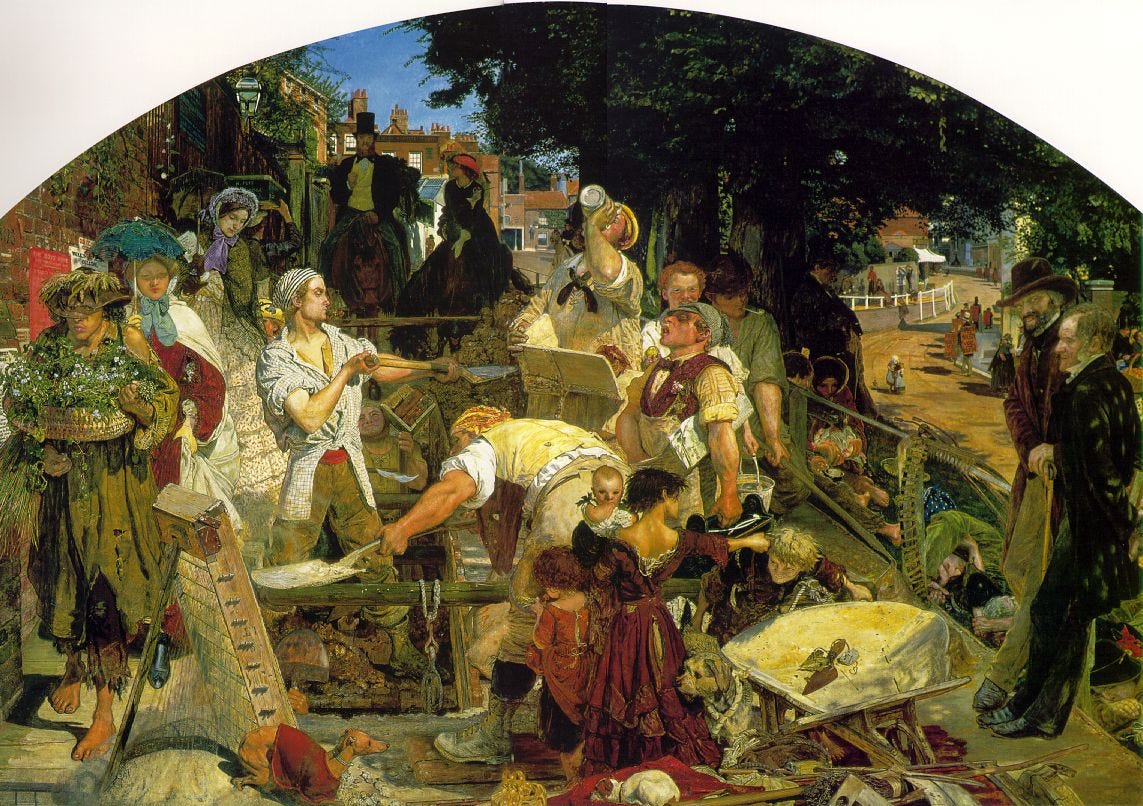What you don't know about the portable toilet industry
"Until the middle of March, nobody washed their hands and it didn’t matter"

Editor’s note: This installment’s subject is an anonymous customer service representative for one of the nation’s largest portable toilet rental companies.
The job is nothing too fancy on that end, except that sometimes the questions get weird. One time, I was speaking to someone from an office; of course the story took place in Florida as the stereotype dictates. The woman was complaining that the hand sanitizer was turning someone’s hands blue. I quickly put two and two together and was horrified when I realized that the unit didn’t have a hand wash station and he was washing his hands in the blue fluid at the bottom of the toilet. I got her off the phone quickly and politely; I just told her it didn't have a sink unit, just hand sanitizer.
In some ways, it’s a basic call center customer service. I’ve been there for about a year and a half. It’s a business-to-business job, so the focus is on handling customer problems, putting in orders, handling billing questions. There’s no good analogy for my job; there’s no other type of business you can compare it to. It’s a little bit of a delivery business, a little bit of a maid business, a little bit of everything.
The whole process for maintaining a portable toilet is way more complicated than you would think. In some ways, it’s like a dumpster, but it’s not, because a human being is supposed to be inside. You want them to be cleaner. It’s grosser than you’d think, but not as gross as you’d think.
The thing about a portable toilet is that everyone uses them but nobody has ever really thought about them until it becomes part of your life. Now it’s part of my life and they’re everywhere to me. I can’t turn around without work having an impact on me. I went to a Black Lives Matter protest and the organizers had a Porta Potti. They’re everywhere and you never think about them.
If you had asked me six months ago, I would have had story after story of weird stuff we come across, but the job has really shifted since the start of the COVID-19 pandemic. We hit our busy season when things got serious in the middle of March, and we have not stopped since then. I had no idea I was an essential employee or how essential our industry was until shit literally hit the fan. You don’t realize that our guys in our field are literally on the front lines. They’re hitting testing sites, construction sites, all in the heat of things. My industry never fully shut down; even before the plague, they didn't get enough credit for how dirty and hard their job was, but now it’s even more ever.
Construction kept going and that’s the portable toilet industry’s biggest sector. When testing centers went up and people started taking things seriously, the demand for portable wash centers and hand sanitizer went through the roof. Even though we had waves of cancellations in the spring, there was an increased demand for hand wash stations, especially among construction sites that never wanted them before needing them and wanting them. The standalone wash stations are gone; we can’t keep them in stock. Until the middle of March, nobody washed their hands and it didn’t matter.
At that point, when America started to take COVID-19 seriously, everything changed at work. In the customer service department, we used to be highly skilled and trained to handle the weirdness and complexity of the job, including the difficult products and the weird products like fancy trailers, but now it’s just a volume business and we’ve been in survival mode for four months. Quality doesn’t matter anymore. There used to be communication up the food chain, you used to talk to managers and things would happen, but when we were sent home, all communication died.
There’s also the matter of price gouging. We have just jacked up our prices to no end just because we could. I have small businesses and nonprofits crying on the phone because they cant’ afford to do business for us. Nonprofits who needed stuff to do what their charity is, they got priced right out. It’s bad and we’ve started treating some of our smaller customers horribly.
Unfortunately, I can’t look for another job because, well, what am I supposed to do? I have the ultimate job security: do I leave and go to a customer-facing job with people who don’t understand the concept of masks? My wife is an epidemiologist with a degree from Columbia; we are conservative about this stuff and we only take calculated risks. Do I leave a job that I used to be good at, that I can work from home at but is super stressful, or do I take a risk trying to pursue another job? At a time when I’m an essential employee and vital, there’s no way for me to leverage that because the options are all awful.
My job is brutal and not nearly what it was. Complaints are discouraged, so I can’t even speak up about anything. When the plague came, you either got laid off or your job changed and became either a risk to your mental health or a risk to your physical health, and it doesn’t feel like there’s an in between ground for anyone. It became a shit job and it didn’t need to be. It became a cash grab. Modern business is modern business, and people are secondary.
What do people not understand about your job? Email aboutmyjob2020@gmail.com to share your story.
Image credit: ‘Work’ by Ford Madox Brown via Wikimedia Commons

